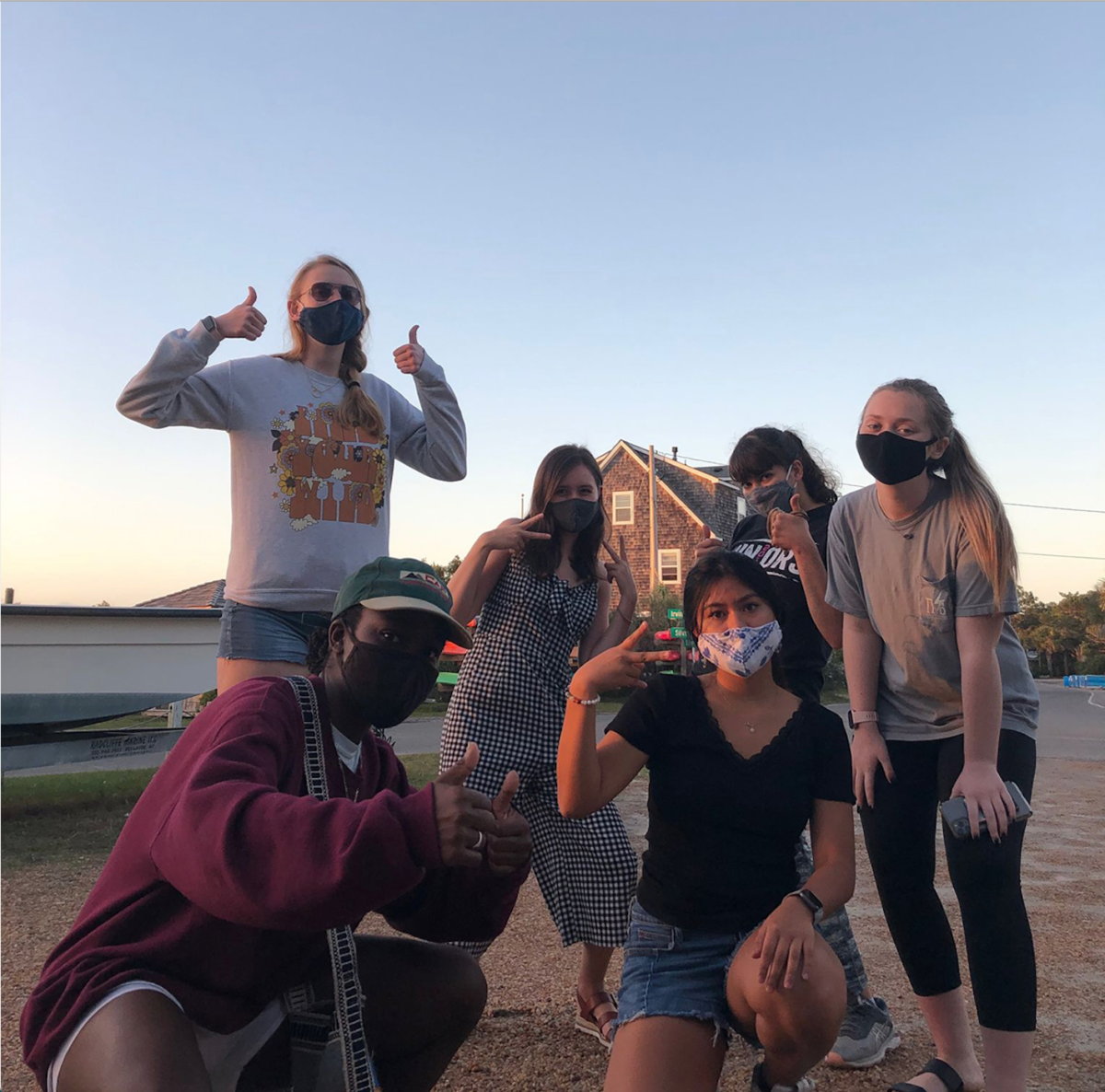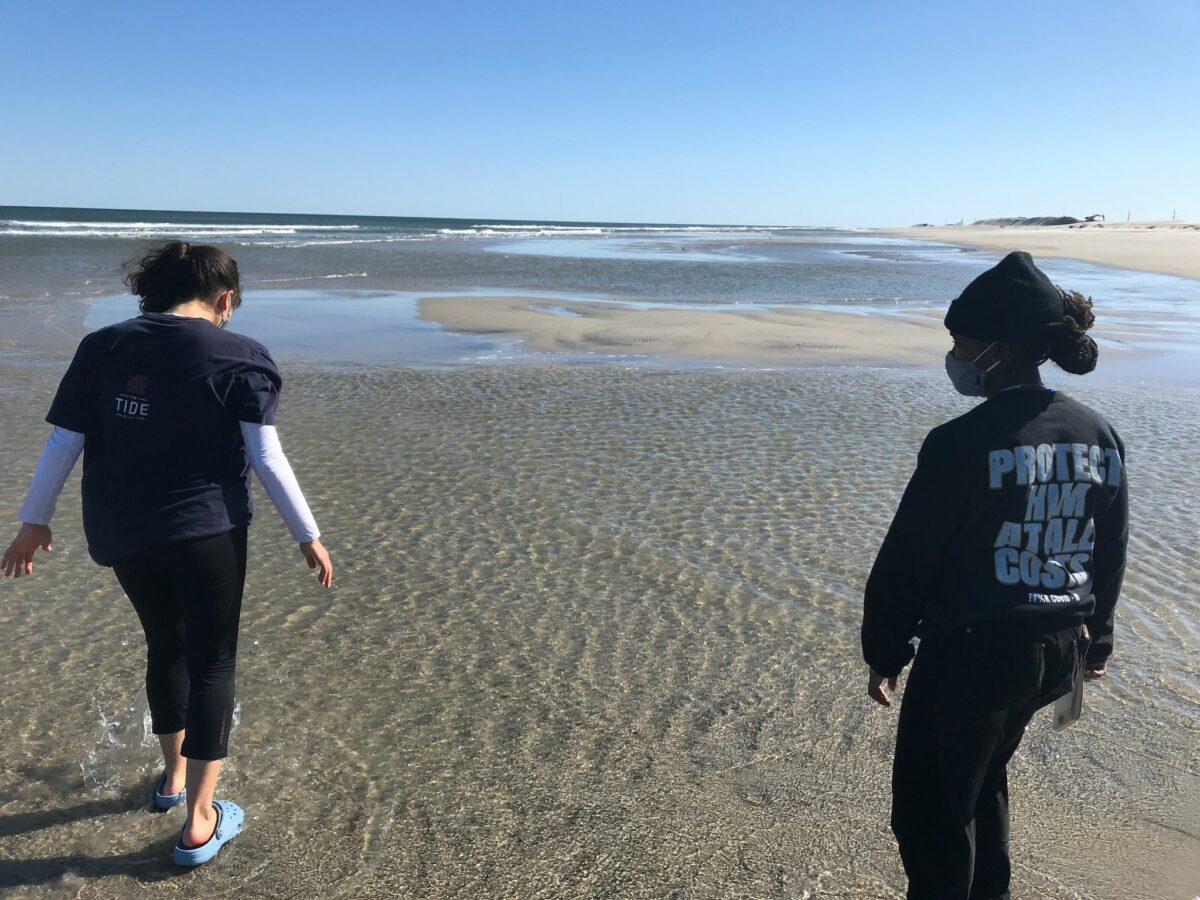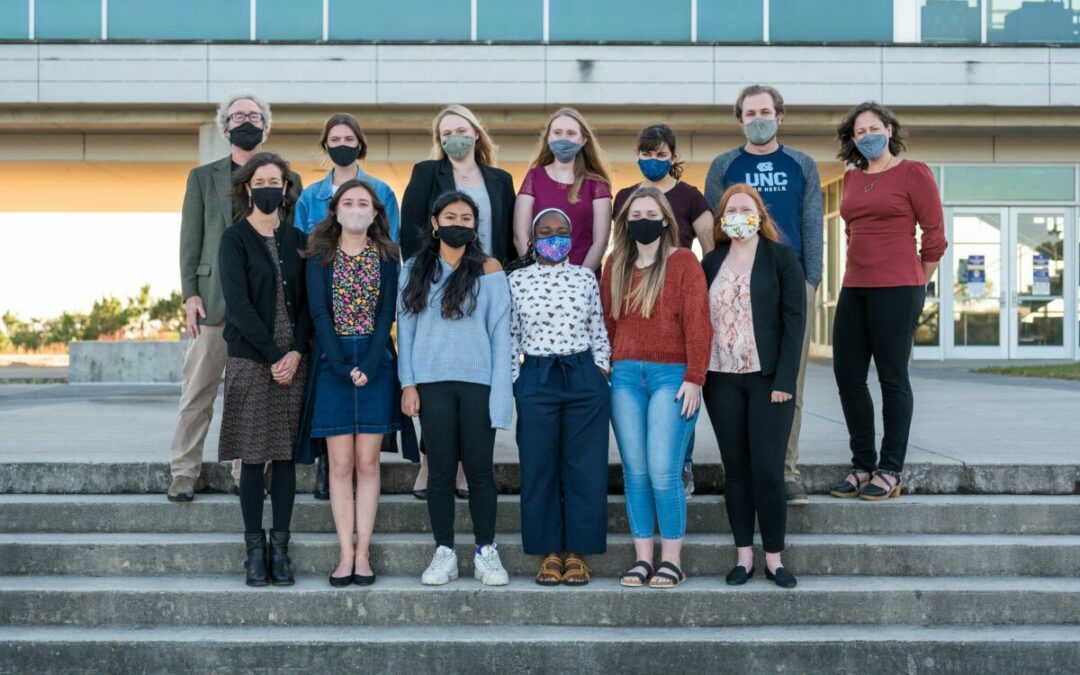Written by Lauren Colonair.
As I reflect on the last four months spent at the Coastal Studies Institute with UNC-Chapel Hill’s Outer Banks Field Site, I have realized that this experience feels as if it should encompass a lifetime. Even as I look over the first story I wrote for CSI, it is as if I am reading a piece I wrote many years ago. Since August, this group of students has grown as individuals and as a group while accomplishing so much.
The OBXFS class of 2020, experienced the field site on a time scale much shorter than any group in the past, due to COVID-19. This resulted in less time to accomplish classes, activities, and most importantly, the Capstone research project. At many points throughout the semester, we asked ourselves how we could possibly get everything done on time. Thankfully, we found ourselves with an overwhelmingly supportive community composed of each other, our instructors, and the various other individuals that supported this year’s experience. The completion of our goals was only possible through this community.
This semester was like no other and not just because of the shortened timeline. The way the field site is run inherently creates an educational experience that differs from that found on the main campus. Throughout the entire experience, we all understood that our classes and our research were met to be linked and intertwined with one another. However, it was not until we were writing our final Capstone report that we really saw how interconnected everything was. As we discussed the best way to present our research result on the septic system and groundwater interactions in Nags Head, NC, we found the information we had acquired through our classes playing an integral role in our writing. From economic policies and stakeholder analysis to ecological processes, all of our classes informed our understanding of the data we collected. This way of learning resulted in the solidification of the knowledge we learned.

Outside of the classroom, the field site provided us with interpersonal connections, the value of which cannot easily be quantified. At the beginning of the semester, it was difficult to get to know each other. Although we were taking classes and living together, there was a general discomfort with interacting with others. As we had just come off of quarantine, most people felt more comfortable in their rooms rather than in the public spaces around our house. However, as we spent more time together and realized everyone was being as careful as possible, we began to spend more time together. As our friendships grew, our ability to work together strengthened, and by the end, we were left with a final version of our research project that we could be proud of, and friendships that we continue to foster outside of the program.
In fact, our group has already planned many things to keep us in contact over our winter break. Currently, we are all organizing a Secret Santa gift exchange. Since we can’t all travel to be physically together we have exchanged addresses and drawn names through a virtual platform. In the hopes that we will be able to return to campus in the spring, we have started to brainstorm ideas for lunches, and other activities we could do together. In short, the field site will not be the end of the relationships that blossomed while we were there.

I know that OBXFS holds a very special place in my heart and in the heart of my peers. We were able to not only learn but apply our new knowledge in so many useful ways. We became part of a community that welcomed us with open arms and provided us with support and a space to grow over the course of the semester. Our instructors acted not only as educators but as an extended family, which was integral to the experience. This program has become a key part of my educational experience and I know the same is true for many of my peers. I am sad to say this, as my time with OBXFS has now come to a close, this is my last article for CSI. However, my fellow students and I will always remember our semester in the Outer Banks fondly, and will always be thankful for CSI and the OBXFS program.



 Based at the Coastal Studies Institute (CSI), the North Carolina Renewable Ocean Energy Program (NCROEP) advances inter-disciplinary marine energy solutions across UNC System partner colleges of engineering at NC State University, UNC Charlotte, and NC A&T University. Click on the links below for more information.
Based at the Coastal Studies Institute (CSI), the North Carolina Renewable Ocean Energy Program (NCROEP) advances inter-disciplinary marine energy solutions across UNC System partner colleges of engineering at NC State University, UNC Charlotte, and NC A&T University. Click on the links below for more information. ECU's Integrated Coastal Programs (ECU ICP) is a leader in coastal and marine research, education, and engagement. ECU ICP includes the Coastal Studies Institute, ECU's Department of Coastal Studies, and ECU Diving and Water Safety.
ECU's Integrated Coastal Programs (ECU ICP) is a leader in coastal and marine research, education, and engagement. ECU ICP includes the Coastal Studies Institute, ECU's Department of Coastal Studies, and ECU Diving and Water Safety. The ECU Outer Banks campus is home to the Coastal Studies Institute.
The ECU Outer Banks campus is home to the Coastal Studies Institute.

